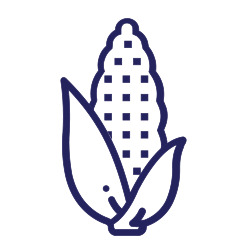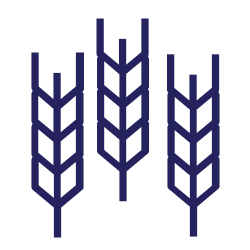Investigating the clavibacter-corn interaction to promote resistance to Goss’s wilt
Crop Types
- Corn
Collaborating Locations
University of ManitobaSummary
Corn is a widely grown crop in Canada and the United States, accounting for a high percentage of total feed grain production. However, a corn leaf disease known as Goss's Wilt has been one of the most yield-limiting diseases as it can lead to substantial yield losses. This study developed a reliable standardized scale of Goss's wilt disease in corn that offered an accurate evaluation of the level of aggressiveness of Clavibacter nebraskensis (Cn) isolates on corn. This research will allow breeders to locate genes that are differentially expressed under different situations (i.e., susceptible vs tolerant/resistant corn lines infected by Goss’s wilt pathogen). This research, will set a solid ground for future investigation of genes that are crucial for corn disease versus resistance and can be used directly by breeders in their breeding program to improve resistance to Goss’s wilt.
Key Takeaways
Created a rating scale to quantify the aggressiveness of the pathogen causing Goss's Wilt. Created a screening nursery identifying aggressiveness of different pathogen varieties. Worked on developing data for breeders to identify genes involved in the resistance response to corn disease.













